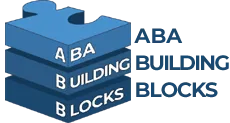Navigating the complex field of behavior therapy requires a set of well-honed skills and strategies, particularly for Registered Behavior Therapists (RBTs) tasked with facilitating effective consulting.
In this comprehensive exploration, we delve into the various strategies that RBTs can employ to enhance their consulting effectiveness. As professionals dedicated to improving the lives of individuals with behavioral challenges, RBTs play a crucial role in implementing evidence-based interventions.
This blog aims to shed light on the key strategies that can empower RBTs in their consulting roles, fostering positive outcomes for both clients and their support systems.
Understanding the Consulting Role
Registered Behavior Therapists (RBTs) frequently assume consulting roles, collaborating with diverse teams and stakeholders to devise and implement behavior intervention plans. The essence of effective consulting extends beyond imparting knowledge; it involves fostering collaboration, enhancing communication, and cultivating a shared commitment to the well-being of individuals receiving services.
RBTs, tasked with this multifaceted responsibility, must skillfully navigate the intersection of interpersonal dynamics, evidence-based practices, and a profound understanding of behavioral principles. In this intricate dance, the therapist becomes not just an educator, but a catalyst for positive change, orchestrating a harmonious symphony of strategies that not only address behaviors but also nurture a supportive environment for optimal outcomes. In exploring the strategies that empower RBTs in their consulting roles, we unveil the keys to unlocking the full potential of behavior therapy interventions.
-
Cultivate Strong Communication Skills
Communication is the bedrock of any successful consulting relationship. Registered behavior therapists must prioritize the development of strong communication skills to convey information clearly and foster understanding between all involved parties. This includes effective listening, articulating ideas succinctly, and utilizing appropriate non-verbal cues. By refining these skills, therapists can create an environment that encourages open dialogue and collaboration.
-
Promote Collaborative Problem-Solving
Behavior therapy often involves multifaceted challenges that require a collaborative approach to problem-solving. Therapists should actively engage with clients, families, and other professionals involved in the individual’s care. Encouraging input from all stakeholders fosters a sense of shared responsibility and increases the likelihood of successful outcomes. Effective collaboration enhances the therapist’s ability to tailor interventions to the unique needs of each client.
-
Maintain a Client-Centered Focus
The client should always be at the center of the consulting process. Therapists must continually assess and reassess their strategies to ensure they align with the individual’s goals and preferences. This client-centered approach not only increases the effectiveness of interventions but also strengthens the therapeutic alliance. Clients are more likely to actively participate in the process when they feel their values and preferences are respected and incorporated into the treatment plan.
Key Strategies for Effective Consulting
-
Clear Communication
Clear and concise communication lies at the heart of effective consulting. RBTs must articulate their observations, analyses, and recommendations in a manner that is easily comprehensible to diverse audiences, including caregivers, educators, and other professionals. The ability to communicate complex behavioral concepts in simple terms enhances collaboration and ensures that all stakeholders are on the same page.
-
Collaborative Approach
Collaboration is a cornerstone of successful behavior therapy. RBTs should actively engage with other professionals, including psychologists, educators, and healthcare providers, to create a comprehensive support network for the individual in question. A collaborative approach fosters a holistic understanding of the client’s needs and enables the development of well-rounded intervention plans.
-
Cultural Competence
Recognizing and respecting cultural differences is paramount in behavior therapy. RBTs must be culturally competent to understand the nuances that influence behavior within different communities. Culturally sensitive practices contribute to a more inclusive and effective consulting process, ensuring that interventions align with the values and norms of the individuals and families involved.
-
Data-Driven Decision-Making
Data collection and analysis are integral components of behavior therapy. RBTs should employ systematic data collection methods to track progress, identify patterns, and make informed decisions. A data-driven approach not only enhances the effectiveness of interventions but also provides concrete evidence of the impact of therapeutic strategies.
-
Customized Intervention Plans
Recognizing that every individual is unique, RBTs should tailor intervention plans to meet the specific needs of each client. A one-size-fits-all approach is inadequate in behavior therapy, and RBTs must continuously assess and adjust interventions based on the individual’s progress and changing circumstances.
-
Continuous Professional Development
The field of behavior therapy is dynamic, with ongoing research and advancements. RBTs must commit to continuous professional development, staying abreast of the latest research, interventions, and ethical guidelines. This commitment ensures that RBTs are equipped with the most up-to-date knowledge and skills to provide effective consulting services.
-
Empowering Caregivers and Support Systems
Effective consulting extends beyond direct interactions with the individual in therapy. RBTs should empower caregivers, educators, and support systems by providing them with the necessary tools and strategies to reinforce interventions outside of formal therapy sessions. Building a collaborative partnership with those involved in the individual’s daily life enhances the overall success of behavior therapy.
-
Ethical Considerations
Upholding ethical standards is non-negotiable for RBTs. Consulting involves navigating sensitive information and situations, requiring a commitment to confidentiality, respect, and integrity. RBTs must adhere to the ethical guidelines set forth by their professional organizations, ensuring the well-being and dignity of the individuals they serve.
Conclusion
Navigating the complex realm of behavior therapy, effective consulting emerges as a multifaceted endeavor demanding a blend of interpersonal skills, evidence-based practices, and a commitment to continual learning. The pivotal role played by Registered Behavior Therapists in shaping the lives of individuals with behavioral challenges underscores the importance of honing effective consulting strategies.
By exploring and implementing the nuanced approaches outlined in this examination, RBTs can significantly enhance their consulting effectiveness. Through prioritizing clear communication, fostering collaboration, embracing cultural competence, employing data-driven decision-making, crafting customized intervention plans, engaging in continuous professional development, empowering support systems, and upholding ethical considerations, RBTs stand poised to create a positive and lasting impact on the individuals and communities they serve.
In a field that continually evolves, the adoption of these strategies becomes imperative for RBTs, ensuring the delivery of the highest standard of care for those navigating the intricate terrain of behavior therapy.






